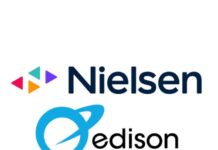
(By Michael Doyle) For years I’ve heard the same refrain from people in the Radio business about being an undervalued medium. They blame advertisers locally and nationally for not seeing the value in Radio.
The truth is the problem belongs to the Radio Industry. We have wasted years not focusing on what advertisers truly care about.
First, we talked about how Newspapers were dying – they didn’t die – but that industry is certainly not as vibrant as it was twenty years ago. According to Pew Research, the Newspaper Industry was a $48 Billion business in 2000, and was just under $10 Billion in 2020. Yet Radio did NOT benefit from this change.
Yellow Pages have gone the same way – shifting from printed pages to an online model and generating revenue that has dropped by billions of dollars. Yet Radio has not benefited from this change.
Over the air and cable television is in the middle of the same kind of seismic loss of eyeballs to commercial free options like Netflix and Hulu. This loss of viewership is where many radio broadcaster are now focused, looking for a source of revenue growth. They believe that pointing out television’s weaknesses will move more money to Radio.
You know the definition of insanity. Doing the same thing over and over and expecting a different outcome.
The radio industry is like the Monty Python and the Holy Grail scene “Bring Out Your Dead,” where the character sits up and says, “I’m not dead yet.” Me thinks we doth protest too much. Yes, Radio’s resilience in the face of new competition is great. Yes, our weekly reach is over 90% of US Adults – greater than any other medium. But advertisers don’t care. We need to stop focusing on talking about where to advertise and focus on how to advertise. How to use the medium effectively. Case studies and success stories about results from happy customers.
You are not selling a product (not Radio – not audio) you are selling a service. The service of providing advertising and marketing ideas and solutions to prospects and customers. The industry, and the leading companies, have got to stop looking for easy ways to fill their revenue coffers by pointing out that other industries are dying. The focus should be on training our teams on how to solve client marketing problems with ideas and execution. Better questions, better ideas, more sophisticated solutions.
Initiatives to point out the decline in local television viewership will yield the sames results as focusing on print or the yellow page decline. Local and cable television viewership is declining. This is true but useless. Advertisers don’t care.
Invest more in measurement of results for advertisers and training your teams on how to solve client problems. Clients don’t care about your reach; they care about moving their products.
Help businesses move product. The money will follow.
For nearly 40 years, Michael Doyle, The Sales MD, has been hiring, training and developing sellers and sales managers around the United States. The success of your business is tied to the success of your sales team. Contact The Sales MD at: [email protected]







Michael’s direct and honest comments are refreshing. What he is saying is absolutely necessary and should be inspiring to us.
Why?
Because it’s the truth!
We spend a lot of time in this industry grappling for numbers in a defensive way, desperately trying to convince others and ourselves) of our ability to generate radio’s equivalent to “clicks” and “likes.”
Of course, “reaching” a lot of the right people, is part of it. However, it’s really about creating outstanding outcomes for advertisers – nearly always based on ideas, creativity and solutions – versus leading solely on “reach” metrics. And “reach,” doesn’t equal engagement nor activation.
At best, it’s a pricing tool for a commodity.
Whether it’s print, TV or the Yellow Pages, those general platforms were and are tactically sold.
Newspapers lost great amounts of revenue when they were no longer in the classified business and businesses discovered new and different ways to advertise. Leading up to that point, other revenue sources helped a bit, such as themed sections, circulars, etc. – but between the various challenges and a subscriber base moving to digital platforms, trying to figure out paywalls and many readers simply giving up, based on the subscription cost or the lack of content in a print version – it essentially led to the current state of that industry.
The Yellow Pages could have been what Google became, but it didn’t. It was sold the same way it always was, and the product was the same as it always was, and in concept and in practice, it became completely irrelevant.
TV sales has always historically been more transactionally sold than radio. While the demand for video content has actually increased dramatically, TV has performed to the opposite. Certainly, much of this also has to do with the success of streaming platforms and better quality original content being created by those entities. But competition either leads one step up or give up. Or it leads to holding on to the past by waving numbers to “play the defensive fiddle, while Rome burns.” Guess what?! Rome IS burning.
However, radio-inspired audio, regardless of platform, doesn’t have to follow in those tracks. Audio content remains in great demand. Unfortunately, the content on radio today is mostly generic, and you can get way much better “generic” in other places – also without 20 minutes plus, of poorly produced advertising.
Because radio has become so commoditized from the top down and throughout, that way of thinking has led to the lack of understanding of the reality of where the business is – and led by a lack of vision as to where it can be.
The fact is, there is little that’s more powerful than the human voice, compelling content, human connection and a personal relationship with people things that are happening around our listeners, versus generic celebrity birthday info and a “playlist.” When was the last time you listened to a “destination” midday person, for example on a music station? The most likely answer, is that it’s convenient place to get the playlist that you like. Unfortunately, most talents are no longer “destinations.” Radio has become a second-rate music streaming platform. Radio in its most successful form, is local – and it’s an “experience,” regardless of the chosen “playlist.”
The same holds true for sales. Outstanding outcomes for advertisers comes from ideas, creatively and a firm grasp on how to engage people to do business. Sales is about creating an experience for advertisers and customers that creates results.
Reach metrics aren’t unnecessary, however they are only a tool. Unfortunately, we live by a tool, and we will die by it.
Great ideas, that create great outcomes, beat out defensive metrics discussions – every time.
Most of what we read and are exposed to today is related to quarterly performance metrics. Of course that’s important.
However, it must be lead by an aspiration to be something, to do something, to create a model which is advertising-based and supports the most connected and engaged audience that we can build.
And “radio, is fundamentally a local business,” and truly requires a different skillset from what we hire for, in many cases.
I believe in reading what Michael has said, and hopefully what’s here, we can look at this with a fresh set of eyes.
It’s absolutely important to state the reality and where we are.
Here’s to Michael’s words to change outmoded thinking.
But make no mistake, his message is not negative. In fact, it’s very positive.
Why?
Because it is a huge opportunity!
Radio can do this – and Radio must do this!
As leaders, however, it starts with us!
I totally agree with Tom and Michael – we need to shifty the focus – onto what our clients ‘want’ and Tom’s statement ‘his message is not negative’ is spot on.
I didn’t come away from Michaels article thinking ‘what a downer’ but excited by it.
I really do want to find that ‘service’ opportunity for my clients and for the industry.
We do need to look at things differently, quantify our measurements through different eyes and educate not only clients on how to advertise correctly, to get results – showcasing what radio does best through innovation.
This is a great first step!